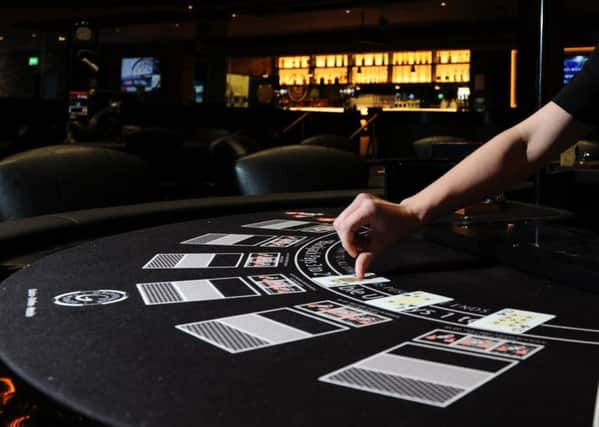Legal Eagle: Casino's court win over cheating gambler marks landmark law for dishonesty


Until relatively recently, any form of gambling was – according to the law – an unlawful act, and as a result bookmakers and casinos could not sue you for the money you had lost.
Similarly, you could not sue them for your winnings. Now in licensed casinos, a gambling debt either way is a binding contract. In order to make it legitimate, the legislation requires that neither party cheats.
Advertisement
Hide AdAdvertisement
Hide AdIn the case of Ivey v Genting Casinos UK Ltd, a professional gambler was held to have cheated. How he did this was rather complicated.
Casinos pander to big gamblers, who sit in ‘lucky’ chairs or use their ‘lucky pack’ of cards. This gambler’s plan was to persuade the casino to use the same pack of cards over and over again.
Although the playing cards are manufactured so as to present a uniform appearance on the back, some of the back of cards are not exactly uniformed.
However, you can identify that sometimes the manufacturing process causes tiny differences to appear on the edge of the cards.
Advertisement
Hide AdAdvertisement
Hide AdCareful gamblers can carry out ‘edge sorting’ to identify certain cards.
Incredibly, this Punto Banco gambler won £7.7million. The casino refused to pay and claimed that he had cheated. He admitted that he had used edge sorting and he admitted that he had set the casino up to do this. He was genuinely convinced that what he had done was not cheating but the court found that it was cheating.
I suppose the basis for this is that it was a game of chance and he had altered the chances.
The importance of the case is twofold. Firstly the court decided that you can cheat without being dishonest, but secondly, it decided a landmark law change for ‘dishonesty’.
Advertisement
Hide AdAdvertisement
Hide AdPreviously the test as to whether a person was dishonest required the court to investigate what the defendant actually thought about what he was doing.
The law is now clear. Many criminal offences require that the prosecution proves that a defendant was dishonest.
The court has to carry out a fact finding investigation as to what he knew was going on.
I am often called upon at Tilly Bailey & Irvine to represent businesses either through their individuals or through the business itself for regulatory offences.
It is essential in this changing area of law to instruct a solicitor experienced in this field who knows of the above complications.